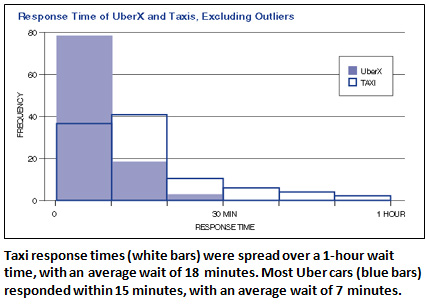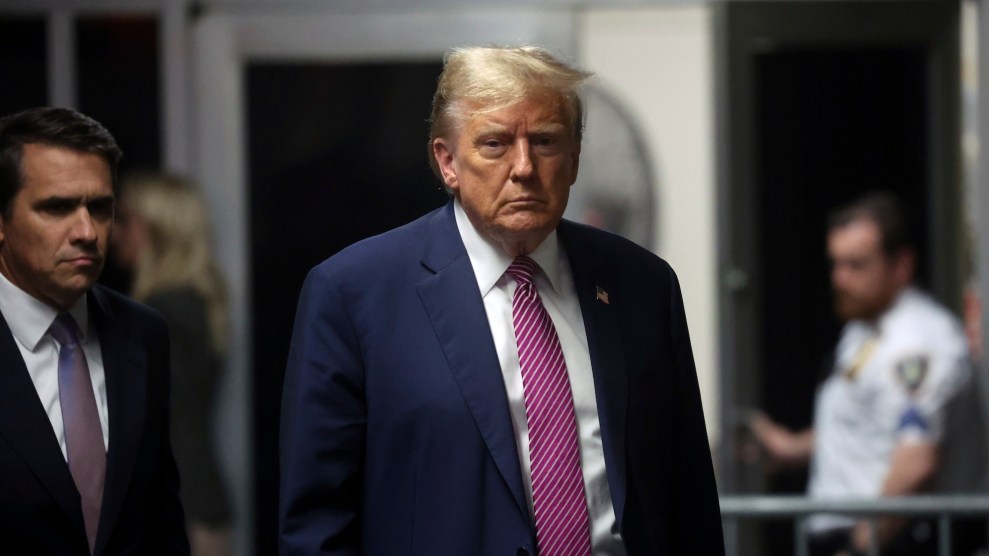 Does Uber routinely pick up riders in good neighborhoods but avoid those who call in from poor neighborhoods? A new study suggests it doesn’t. Mark Kleiman, who played a small role in the study, explains what it found:
Does Uber routinely pick up riders in good neighborhoods but avoid those who call in from poor neighborhoods? A new study suggests it doesn’t. Mark Kleiman, who played a small role in the study, explains what it found:
The design could hardly have been simpler; we sent pairs of riders to call for taxi service or use an app to summon UberX for travel along pre-planned routes. The riders recorded how long it took….After each ride, the riders switched off; whoever took a taxi last time took an Uber next time. Our riders didn’t know that Uber had paid for the study.
The answer was clear-cut, and consistent across neighborhoods and days: summoning an UberX took less than half as long as calling for a taxi, and the trip cost less than half as much. UberX was also more reliable, with no very long wait times.
Even though Uber had no control over our data analysis or interpretation, the fact that Uber paid for the study makes some skepticism about our results natural and proper. We will happily share our data and methods with other research teams for re-analysis and replication.
It was not possible for a single study in a single city to answer all the relevant questions about ridesharing. Would the same relationship hold in other cities? Would it hold in the small number of very-high-crime neighborhoods we excluded in order to protect our riders? Would it hold after dark?….So this study ought to be the beginning of the scientific effort rather than the end.
This is tentatively good news for Uber. As Mark says, it’s a beginning, not the final word in how Uber compares to taxis. They didn’t test in high-crime neighborhoods, and obviously Uber’s requirement for a smartphone and a credit card automatically precludes the very poor from using their service at all.
Still, an interesting first cut, and it’s basically fairly cheap research to carry out. The full report is here.

















